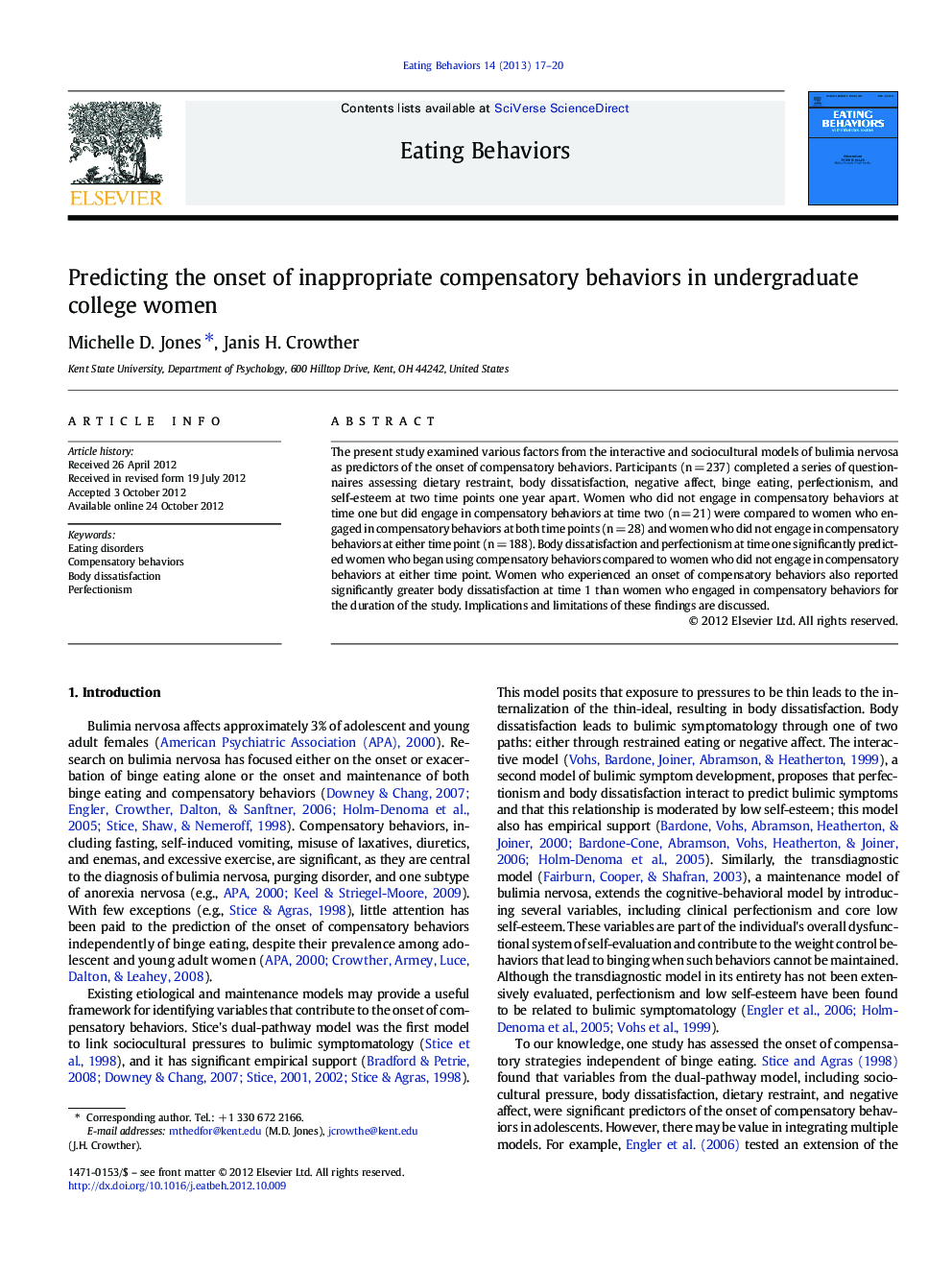| Article ID | Journal | Published Year | Pages | File Type |
|---|---|---|---|---|
| 906548 | Eating Behaviors | 2013 | 4 Pages |
The present study examined various factors from the interactive and sociocultural models of bulimia nervosa as predictors of the onset of compensatory behaviors. Participants (n = 237) completed a series of questionnaires assessing dietary restraint, body dissatisfaction, negative affect, binge eating, perfectionism, and self-esteem at two time points one year apart. Women who did not engage in compensatory behaviors at time one but did engage in compensatory behaviors at time two (n = 21) were compared to women who engaged in compensatory behaviors at both time points (n = 28) and women who did not engage in compensatory behaviors at either time point (n = 188). Body dissatisfaction and perfectionism at time one significantly predicted women who began using compensatory behaviors compared to women who did not engage in compensatory behaviors at either time point. Women who experienced an onset of compensatory behaviors also reported significantly greater body dissatisfaction at time 1 than women who engaged in compensatory behaviors for the duration of the study. Implications and limitations of these findings are discussed.
► Two theoretical models were integrated to predict onset of compensatory behaviors. ► Body dissatisfaction and perfectionism predicted onset of compensatory behaviors. ► Strategy onset was associated with greater body dissatisfaction than continual use. ► Body dissatisfaction and perfectionism are potential targets for intervention.
